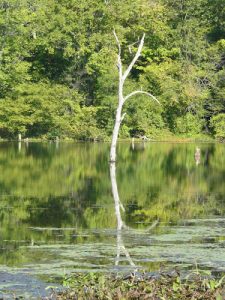Sustainability or Lights Out
Posted by: nekollx | Posted on: January 17, 2018 By Jan Barry
By Jan Barry
Modern people act quite often as though the Earth were replaceable—trash this one, order a new one in the morning. So it may have been a revelation for many who heard Pope Francis tell world leaders at a United Nations General Assembly meeting in New York that harm to the environment harms us too.
Speaking out against “misuse and destruction of the environment” and a growing “culture of waste,” which has left increasing numbers of people impoverished and living in places poisoned by toxic spills and contaminated air and water, the leader of the Roman Catholic Church said the universe was not created by God for humans to tear apart. Man was given a gift of living on this Earth, Francis added, “he is not authorized to abuse it, much less to destroy it.”
In his UN address in September 2015, on the heels of an historic speech to Congress, and in a widely disseminated environmental encyclical to the people of the world, the head of one of the world’s major religions mounted a campaign to get government leaders and ordinary folks to seriously tackle environmental protection through social and economic transformations.
At a forum at Ramapo College on Pope Francis’ call for action on environmental protection, a man stood up in the audience and said: “We have to start acting now! My children and grandchildren may not have a place to live.” Addressing the panel of environmentally minded professors, the speaker continued: “I was a student here in 1975-80. We were encouraged to be activists. We were provided tools to be activists.”
A few weeks later, Rampo College hosted a conference on student activism on environmental sustainability. President Peter Mercer said this focus is a priority for the state college, which borders the Ramapo River, a regional water supply stream, in Mahwah, NJ. Billed as “Campus Sustainability Day,” the event provided an opportunity for student leaders in various clubs to hear report outs from department heads about environmentally focused changes on campus—such as installing LED lights and cutting uses of paper—and to offer ideas for additional actions.
Among the students’ suggestions: institute a required course in sustainability in every major, turn lawns into “sustainable landscaping” such as wildflower meadows, provide compostable plates, cups and utensils in dining halls and at conferences. “We’re working on a project to have 100 percent of food waste go to compost,” announced a student activist.
A few days later, the college hosted a conference for community activists on climate change and energy issues. Sponsored by the public interest group Food & Water Watch, the conference attracted more than 100 environmental activists from the New York metropolitan region. Many were there to exchange ideas on how to counter a deluge of fracked oil and gas being shipped by trains, barges and pipelines to refineries in New Jersey. Rail lines and pipelines cut through water supply areas and residential neighborhoods, state parks and forests.
Panelists included leaders of the Coalition to Ban Unsafe Oil Trains, Coalition Against Pilgrim Pipeline, NJ Working Families, NJ Pinelands Preservation Alliance, New Jersey Environmental Justice Alliance, Sane Energy Project and many other groups. “You can feel change coming,” said Lawrence Hamm, a Newark-based civil rights activist, addressing the crowd in the keynote address. “We must reestablish our connection with Nature…We need to join these movements together in the same fight.”
For more information:
pope-francis-encyclical-laudato-si-on-environment



Comments are Closed